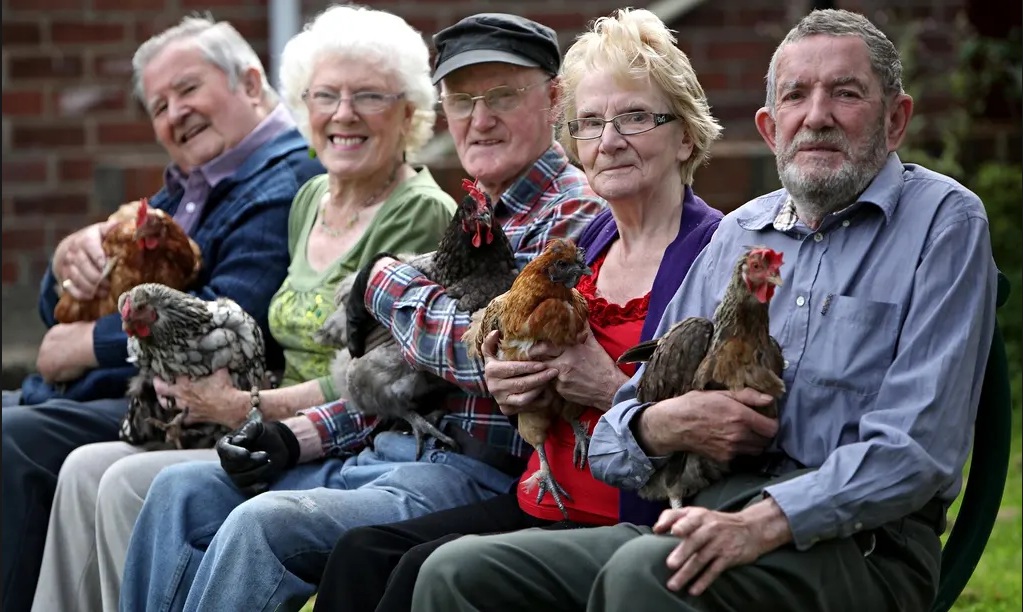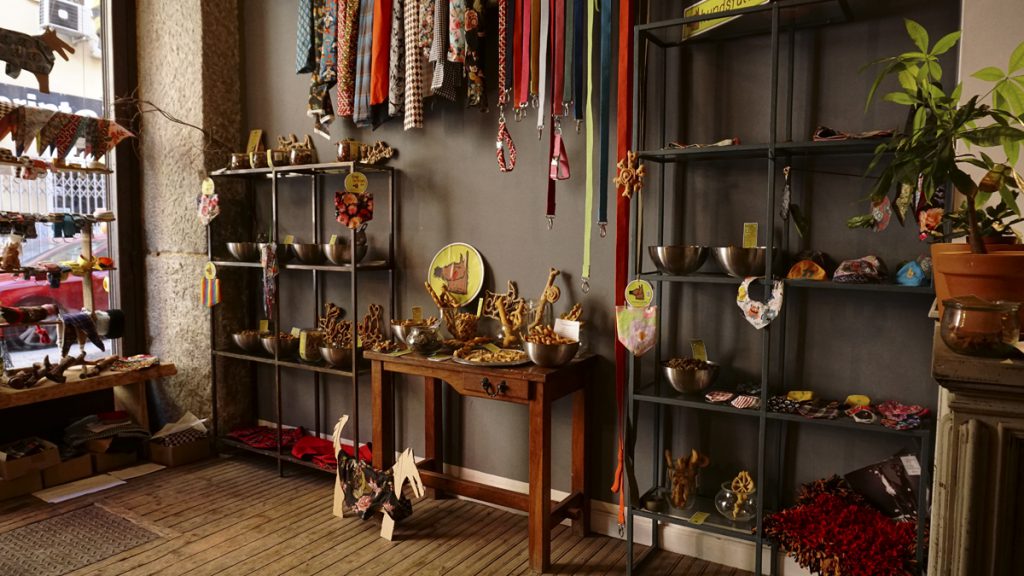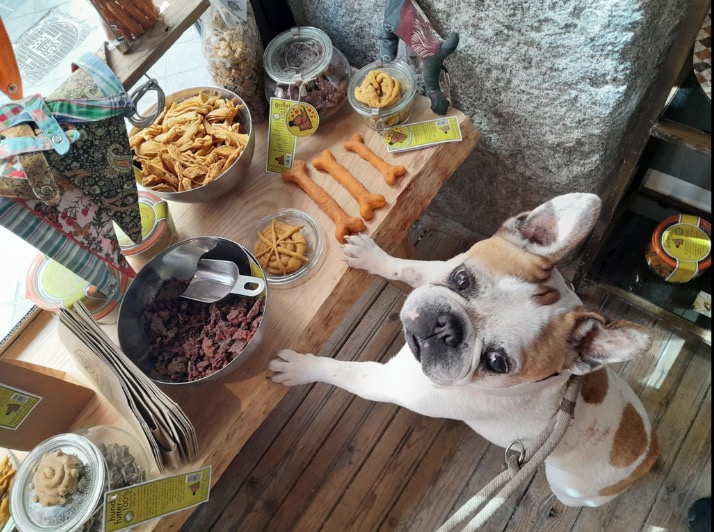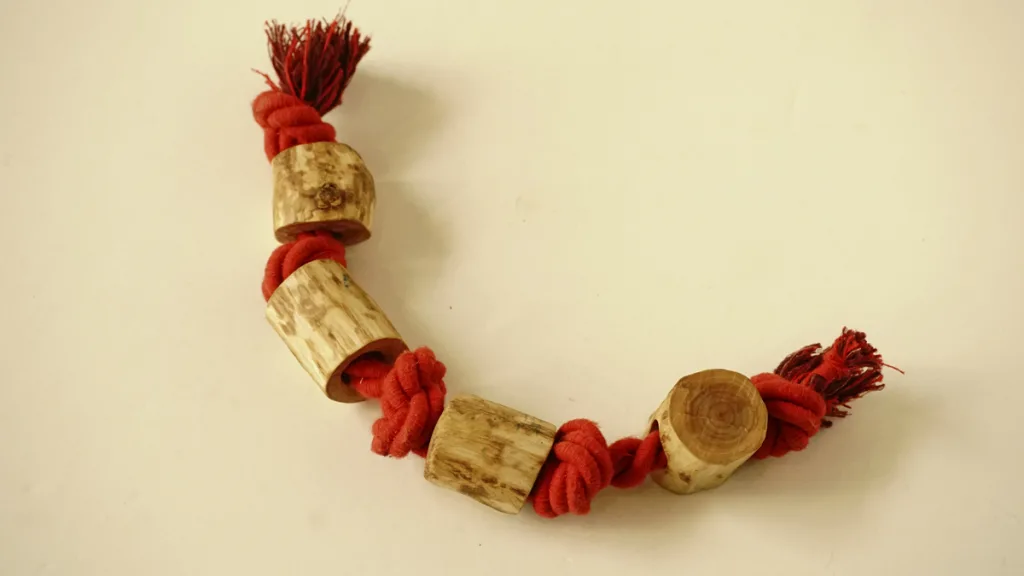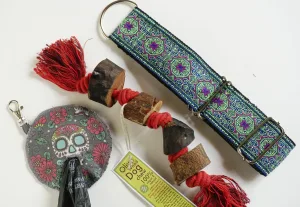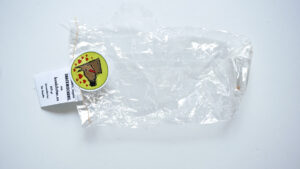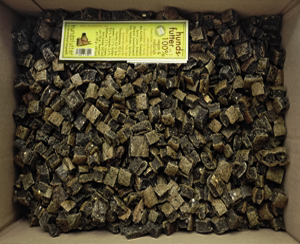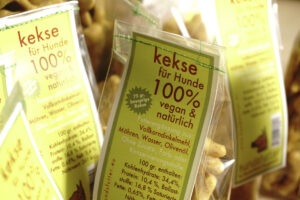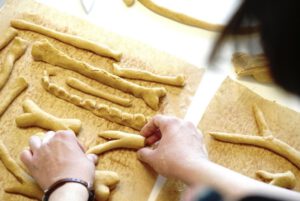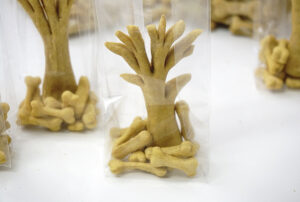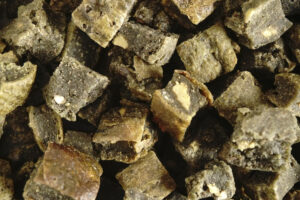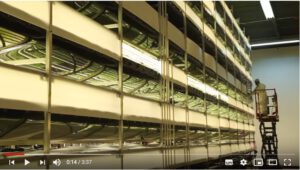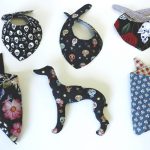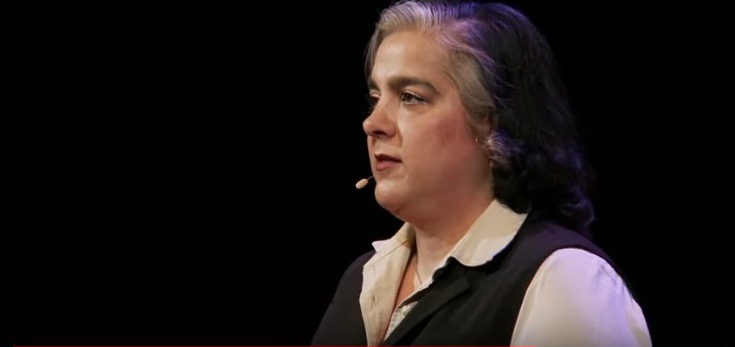
Here is one Video by world health expert Alanna Shaikh, who wonderfully deduces how our behavior as humans on the planet inevitably leads and will lead to pandemics such as Coronavirus 19. Because if we continue as before, we will miss the chance of a future worth living. The problems that threaten us cannot be solved like politics and economics of most countries would like. Justice Coronavirus remedies are rooted in the problem. And don't treat the symptoms. And more importantly, it is the remedy for all other viruses that we do not yet know.
What you can do about devastating pandemics is simple and doesn't have to be invented. But it is very, very uncomfortable. And there is the problem. It means drastic changes in the system. The values for a future worth living are: justice, Sustainability, Respect and compassion. Not greed, exploitation, unscrupulousness and looking away.
We have to move away from the division of society into poorer and richer. It must be normal for the weak to participate in the life and opportunities that the rich countries have. Justice is the remedy for coronavirus and other pandemics that can come. Our lifestyle must not be based on exploitation and destruction. The Right to health and appropriate facilities for maintaining health must be a matter of course for all people. The same applies to the right to fair treatment and a real chance to be able to feed yourself with your work.
In the best case, there are no epidemics at all. And if they do occur, epidemics can be identified and contained in good time before a pandemic like Corona 19 can develop.
If a few take too much, there is not enough left for the others.
But unfortunately, the exploitation of the world by the rich countries is taking increasingly unscrupulous forms. Which is just as much to blame for the huge consumption of energy and consequent global warming that people in poor countries have to live so that they get sick.
Return to real values like Solidarity and ethics.
We need a return to ethical values. It just has to be normal that people have a feeling for what is and what is not. It may also help to understand that justice is the most effective remedy for coronavirus if we realize that in the end we benefit from it ourselves.
We have lost common sense.
At the moment we have allowed all messages on social media to be similar and hardly anyone differentiated with what intention they were put on the net. As a result, groups and people have started to influence us massively, so that we develop as it is beneficial for their interests. This is very dangerous because we have lost our own criteria and common sense. And we are becoming more and more numb.
Here is the video:
"I want to lead here by talking a little bit about my credentials to bring this up with you, Because, quite honestly, you really, really shouldn't listen to any old person with an opinion about COVID-19. (laughter) So, I've been working in global health for about 20 years, and my specific technical specialty is in health systems and what happens when health systems experience severe shocks. I've also worked in global-health journalism. I've written about global health and biosecurity for newspapers and web outlets, and I published a book a few years back about the major global health threats facing us as a planet. I have supported and led epidemiology efforts that range from evaluating Ebola treatment centers to look at transmission of tuberculosis in health facilities and doing avian influenza preparedness. I have a master's degree in International Health. I'm not a physician. I'm not a nurse. My specialty isn't patient care or taking care of individual people. My specialty is looking at populations and health systems - what happens when diseases move on the large level. If we're ranking sources of global health expertise on a scale of 1 to 10 - 1 is some random person ranting on Facebook, and 10 is the World Health Organization - I'd say you can probably put me at like a 7 or an 8. So keep that in mind as I talk to you. I'll start with the basics here because I think that's gotten lost in some of the media noise around COVID-19. So, COVID-19 is a coronavirus, and coronaviruses are a specific subset of viruses, and they have some unique characteristics as viruses. They use RNA instead of DNA as their genetic material, and they're covered in spikes on the surface of the virus, and they use those spikes to invade cells. Those spikes are the corona in coronavirus. COVID-19 is known as a novel coronavirus because, until December, we'd only heard of six coronaviruses. COVID-19 is the seventh. It's new to us, it just had its gene sequencing, it just got its name - that's why it's novel. If you remember SARS - severe acute respiratory syndrome - or MERS - Middle East respiratory syndrome, those were coronaviruses, and they're both called respiratory syndromes because that's what coronaviruses do. They go for your lungs. Don't make you puke, they don't make you bleed from the eyeballs, they don't make you hemorrhage, they head for your lungs. COVID-19 is no different. It causes a range of respiratory symptoms that go from stuff like a dry cough and a fever all the way out to fatal viral pneumonia. And that range of symptoms is one of the reasons it's actually been so hard to track this outbreak. Plenty of people get COVID-19, but so gently, their symptoms are so mild that they don't even go to a health care provider. They don't register in the system. Children, in particular, have it very easy with COVID-19, which is something we should all be grateful for. Coronaviruses are zoonotic, which means that they transmit from animals to people. Some coronaviruses, like COVID-19, also transmit person to person. The person-to-person ones travel faster and travel farther, just like COVID-19. Zoonotic illnesses are really hard to get rid of because they have an animal reservoir. One example is avian influenza, where we can abolish it in farmed animals, in turkeys, in ducks, but it keeps coming back every year because it's brought to us by wild birds. You don't hear a lot about it because avian influenza doesn't transmit person to person, but we have outbreaks in poultry farms every year all over the world. COVID-19 most likely skipped from animals into people at a wild animal market in Wuhan, China. Now for the fewer basic parts. This is not the last major outbreak we're ever going to see. There's going to be more outbreaks, and there's going to be more epidemics. That's not a maybe; that's a given. And it's a result of the way that we, as human beings, are interacting with our planet. Human choices are driving us into a position where we're going to see more outbreaks. Part of that is about climate change and the way a warming climate makes the world more hospitable to viruses and bacteria. But it's also about the way we're pushing into the last wild spaces on our planet. When we burn and plow the Amazon rain forest so that we can have cheap land for ranching, when the last of the African bush gets converted into farms, when wild animals in China are hunted to extinction, human beings come into contact with wildlife populations that they've never come into contact with before, and those populations have new kinds of diseases: bacteria, viruses - stuff we're not ready for. Bats, in particular, have a crack for hosting illnesses that can infect people. But they're not the only animals that do it. As long as we keep making our remote places less remote, the outbreaks are going to keep coming. We can't stop the outbreaks with quarantine or travel restrictions. That's everybody's first impulse: Let's stop the people from moving, let's stop this outbreak from happening. But the fact is it's really hard to get a good quarantine in place. It's really hard to set up travel restrictions. Even the countries that have made serious investments in public health, like the US and South Korea, can't get that kind of restriction in place fast enough to actually stop an outbreak instantly. There's logistical reasons for that, and there's medical reasons. If you look at COVID-19, right now, it seems like it could have a period where you're infected and show no symptoms that's as long as 24 days. So people are walking around with this virus showing no signs. They're not going to get quarantined. Nobody knows they need quarantine. There's also some real costs to quarantine and to travel restrictions. Humans are social animals, and they resist when you try to hold them into place and when you try to separate them. We saw in the Ebola outbreak that as soon as you put a quarantine in place, people start trying to evade it. Individual patients, if they know there's a strict quarantine protocol, may not go for health care because they're afraid of the medical system, or they can't afford care, and they don't want to be separated from their family and friends. politicians, government officials, when they know they're going to get quarantined, if they talk about outbreaks and cases, may conceal real information for fear of triggering a quarantine protocol. And, of course, these kinds of evasions and dishonesty are exactly what makes it so difficult to track a disease outbreak. We can get better at quarantines and travel restrictions, and we should. But they're not our only option, and they're not our best option for dealing with these situations. The real way for the long haul to make outbreaks less serious is to build the global health system to support core healthcare functions in every country in the world so that all countries, even poor ones, are able to rapidly identify and treat new infectious diseases as they emerge. China's taken a lot of criticism for its response to COVID-19. But the fact is, What if COVID-19 had emerged in Chad, which has 3.5 doctors for every 100,000 people? What if it had emerged in the Democratic Republic of Congo, which just released its last Ebola patient from treatment? The truth is countries like this don't have the resources to respond to an infectious disease, not to treat people and not to report on it almost enough to help the rest of the world. I led an evaluation of Ebola treatment centers in Sierra Leone. And the fact is that local doctors in Sierra Leone identified the Ebola crisis very quickly. First as a dangerous, contagious hemorrhagic virus, and then as Ebola itself. But having identified it, they didn't have the resources to respond. They didn't have enough doctors or hospital beds, and they didn't have enough information about how to treat Ebola or how to implement infection control. Eleven doctors died in Sierra Leone of Ebola. The country only had 120 when the crisis started. By way of contrast, Dallas Baylor Medical Center has more than 1,000 physicians on staff. These are the kinds of inequities that kill people. First, they kill the poor people when the outbreaks start, and then they kill people all over the world when the outbreaks spread. If we really want to slow down these outbreaks and minimize their impact, we need to make sure that every country in the world has the capacity to identify new diseases, treat them, and report about them so they can share information. COVID-19 is going to be a huge burden on health systems. I'm not going to talk about death rates in this talk Because, frankly, nobody can agree on the COVID-19 death rates right now. But one number we can agree on is that about 20% of people infected with COVID-19 are going to need hospitalization. Our US medical system can barely cope with that. But what's going to happen in Mexico? COVID-19 has also revealed some real weaknesses in our global health supply chains. Just-in-time ordering LEAN systems are great when things are going well, but in a time of crisis, what it means is we don't have any reserves. If a hospital or a country runs out of face tasks or personal protective equipment, There's no big warehouse full of boxes that we can go to get more. You have to order more from the supplier, wait for them to produce it, and you have to wait for them to ship it, generally, from China. That's a time lag at a time when it's most important to move quickly. If we'd been perfectly prepared for COVID-19, China would have identified the outbreak faster. They would have been ready to provide care to infected people without having to build new buildings. They would have shared honest information with citizens so that we didn't see these crazy rumors spreading on social media in China. And they would have shared information with global health authorities so that they could start reporting to national health systems and getting ready for when the virus spreads. National health systems would then have been able to stockpile the protective equipment they needed and train health care providers on treatment and infection control. We'd have science-based protocols for what to do when things happen, like cruise ships have infected patients. And we'd have real information going out to people everywhere, so we wouldn't see embarrassing, shameful incidents as xenophobia, like Asian-looking people getting attacked on the street in Philadelphia. But even with all that in place, we would still have outbreaks. The choices we're making about how we occupy this planet make that inevitable. As far as we have an expert consensus on COVID-19, it's this: here in the US and globally, it's going to get worse before it gets better. We're seeing cases of human transmission that aren't from returning travel, that are just happening in the community. And we're seeing people infected with COVID-19 when we don't even know where the infection came from. Those are signs of an outbreak that's getting worse, not an outbreak that's under control. It's depressing, but it's not surprising. Global health experts, when they talk about the scenario of new viruses, this is one of the scenarios that they look at. We all hoped we'd get off easy. But when experts talk about viral planning, this is the kind of situation and the way they expect the virus to move. I want to close here with some personal advice. Wash your hands! Wash your hands a lot! I know you already wash your hands a lot because you're not disgusting. But wash your hands even more. Set up cues and routines in your life to get you to wash your hands. Wash your hands every time you enter and leave a building. Wash your hands when you go in and come out of a meeting. Get rituals there based around handwashing. Sanitize your phone. You touch the phone with your dirty, unwashed hands all the time. I know you take it into the bathroom with you. (laughter) So, sanitize your phone and consider not using it as often in public. Maybe TikTok and Instagram could be home things only? Don't touch your face. Don't rub your eyes. Don't bite your fingernails. Don't wipe your nose on the back of your hand. I mean, don't do that anyway because it's gross. (laughter) Don't wear a face mask. Face tasks are for sick people and health care providers. If you're sick, your face mask holds in all your coughing and sneezing and protects the people around you. And if you're a health care provider, your face mask is one tool in a set of tools called personal protective equipment, that you're trained to use so you can give patient care and don't get sick yourself. If you're a regular, healthy person wearing a face mask, it's just making your face sweaty. (laughter) Leave the face tasks in stores for the doctors and the nurses and the sick people. If you think you have symptoms of COVID-19, stay home, call your doctor for advice. If you're diagnosed with COVID-19, remember, it's generally very mild. And if you're a smoker, right now is the best possible time to quit smoking. I mean, if you're a smoker, Right now is always the best possible time to quit smoking. But if you're a smoker and you're worried about COVID-19, I guarantee that quitting is absolutely the best thing you can do to protect yourself from the worst impacts of COVID-19. COVID-19 is scary stuff at a time when pretty much all of our news feels like scary stuff. And there's a lot of bad but appealing options for dealing with it: panic, xenophobia, agoraphobia, authoritarianism, oversimplified lies that make us think that hate and fury and loneliness are the solution to outbreaks. But they're not, they just make us less prepared. There's also a boring but useful set of options that we can use in response to outbreaks, things like improving health care, here and everywhere; investing in health infrastructure and disease surveillance so that we know when the new diseases come; building health systems all over the world; looking at strengthening our supply chains so they're ready for emergencies; and better education, so we're capable of talking about disease outbreaks and the mathematics of risk without just blind panic. We need to be guided by equity here because in this situation, like so many, equity is actually in our own self-interest. So, thank you so much for listening to me today, and can I be the first one to tell you: wash your hands when you leave the theater." (applause)
Corona virus is our future | Alanna Shaikh | TEDxSMU
https://www.ted.com/talks/alanna_shaikh_coronavirus_is_our_future/transcript

